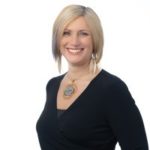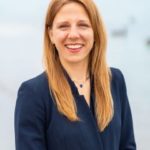
- This event has passed.
Collab Lab 53: Sharing Student Work & Stories – NEW DATE
Thursday March 16, 2023 @ 5:30 pm - 8:30 pm
Given the winter storm warnings for Thursday March 9th, we have rescheduled the session, and will look forward to seeing you on Thursday March 16th.
What if students could see their work and stories impact the community?
A real audience drives effort and engagement. How can we leverage community engaged projects to create opportunities for students not simply to share their work with the broader community but to see that it is valued, and can impact the issues they care about? What have you seen, explored, dreamt of? Join the discussion with colleagues from K-12 and partners from industry, higher-ed, and area nonprofits. Let’s see what opportunities we can create before the end of the school year.
Agenda
5:30 – 6:00 Grab something to eat and drink, say hello
6:00 – 6:30 Introductions
6:30- 8:30 Let’s talk through some ideas
Food and beverage will be provided. There is no charge for participation but space is limited!
Featured Participants
Among others, you’ll have a chance to talk with:
 Katie brings a unique perspective to brand strategy for manufacturers. She works with teams to develop a worthy value proposition and genuine messaging that resonates with decision makers and potential employees. She recognizes how a strong narrative can go beyond describing what a manufacturer and its employees are able to produce, to convey the core values they hold.
Katie brings a unique perspective to brand strategy for manufacturers. She works with teams to develop a worthy value proposition and genuine messaging that resonates with decision makers and potential employees. She recognizes how a strong narrative can go beyond describing what a manufacturer and its employees are able to produce, to convey the core values they hold.
Marissa Jablonski – Executive Director, Freshwater Collaborative of Wisconsin
 The Freshwater Collaborative works across the 13 University of Wisconsin Institutions to lead the global community in addressing freshwater challenges. It’s mission is :
The Freshwater Collaborative works across the 13 University of Wisconsin Institutions to lead the global community in addressing freshwater challenges. It’s mission is :
- Create knowledge to solve freshwater challenges through collaborative research across academia in fields such as natural and applied sciences, engineering, economics, social sciences, arts, humanities and policy;
- Recruit and develop talented professionals across all freshwater disciplines through intentional structuring of curriculum, training and workplace experiences; and
- Improve the well-being of natural ecosystems and all people by applying research and training to engage and serve communities and solve freshwater challenges.
Marissa recognizes that a key asset needed to take on these challenges is an ability to effectively share and communicate the work, not just across disciplines, but to a broader audience. Not just to share data, but to tell a compelling story about both the challenge at hand but the work to be done to address it.


